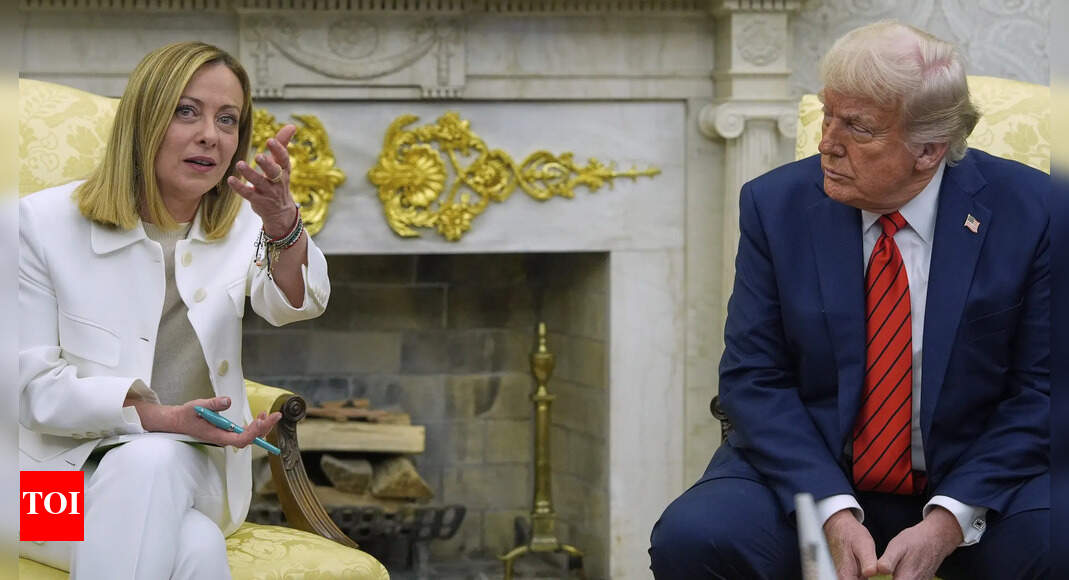‘There’ll be a deal, 100%’: Trump hosts Italy’s Meloni amid tariff talks with Europe
On Thursday, Prime Minister Giorgia Meloni of Italy arrived at the White House to meet President Donald Trump, marking a critical moment in the U.S.-Europe trade standoff. Meloni, one of the few European leaders Trump has openly praised, follows a Japanese delegation that left Washington a day earlier without clinching a deal.
Meloni may have come representing Italy, but for Trump’s administration, she’s seen as a potential bridge to the rest of Europe. Trump, who has yet to meet European Commission President Ursula von der Leyen, has repeatedly claimed the European Union was created to “screw” the U.S.
“There’ll be a trade deal, 100%,” Trump said as he welcomed Meloni, referring to a potential agreement before the 90-day pause on new tariffs expires.
Senior administration officials, speaking ahead of the meeting, said Meloni could help convey Washington’s views across Europe. The two leaders were scheduled to begin talks over an elaborate lunch also attended by Vice President JD Vance, whose own European trip earlier this year aligned him with Germany’s far-right political party.
Despite Trump’s admiration for Meloni’s conservative nationalism, Italy isn’t quite the model he wants on trade or defense. Italy maintains a $45 billion trade surplus with the U.S., driven by American demand for luxury goods—everything from sparkling wine to Ferraris. The high-end autos, which sell for upwards of $250,000, may face Trump’s proposed 25% tariff hike.
Meanwhile, Italy has yet to meet its NATO pledge of spending 2% of its GDP on defense, currently falling short at under 1.5%.
The Japanese left without a breakthrough after discussing auto tariffs and high-tech imports. Meloni is unlikely to emerge with a deal either—but for Trump, these face-to-face sessions are the point. In recent days, he has raised, paused, and threatened tariffs, all on a whim.
Meloni’s visit underscores Europe’s search for a stable channel to the Trump White House—and Trump’s continued use of unpredictability as a negotiating weapon.
